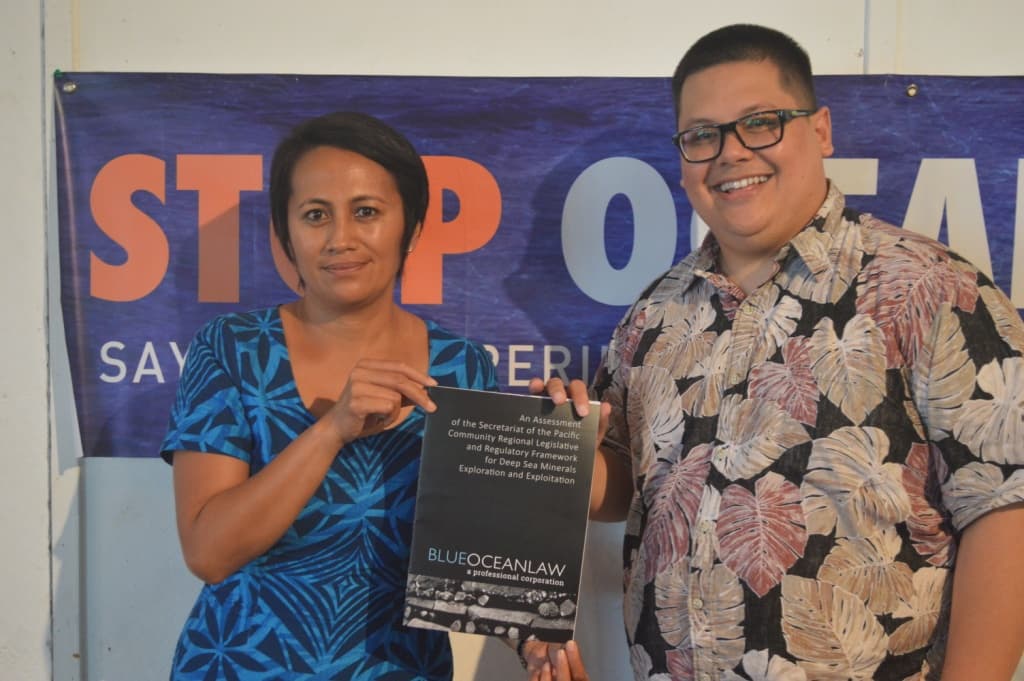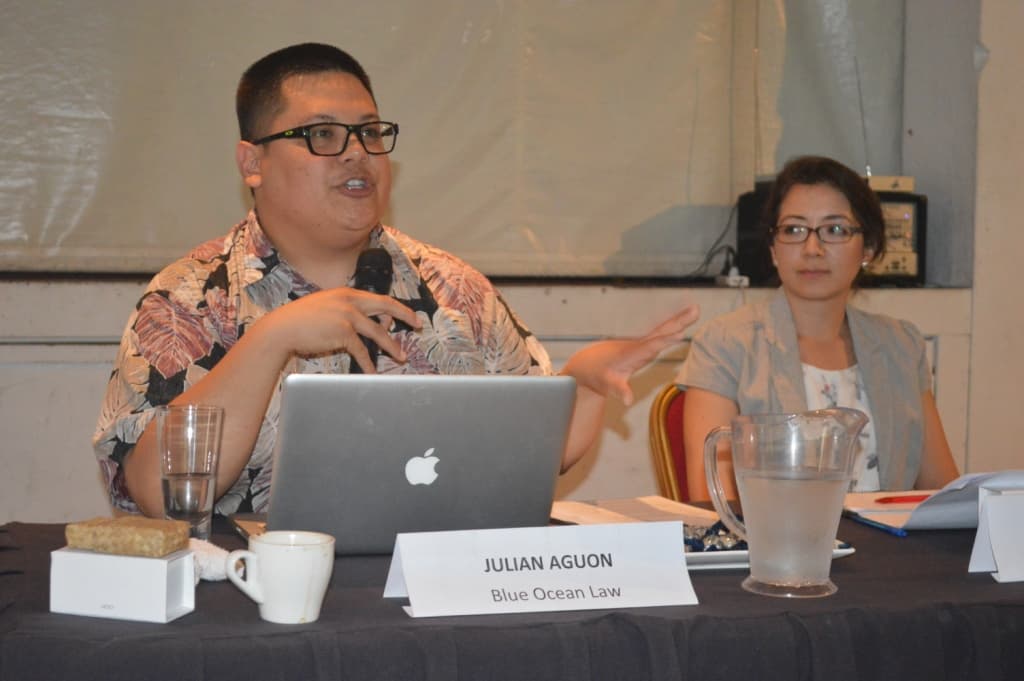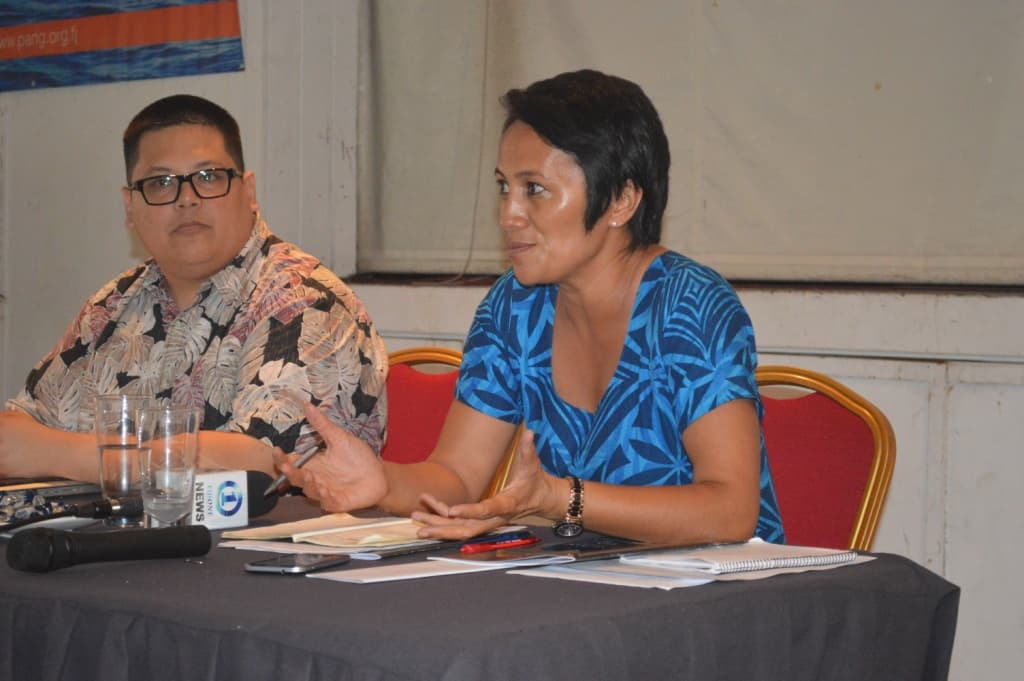SPC-EU Framework needs safeguards
Source: PANG
Blue Ocean Law and Pacific Network on Globalisation Release Legal Analysis of SPC-EU Regional Legislative and Regulatory Framework –
Calls for Greater Indigenous and Environmental Safeguards

Regional partners Blue Ocean Law and PANG.
International law firm Blue Ocean Law (BOL), together with Fiji-based regional non-governmental organisation, Pacific Network on Globalisation (PANG), have released “An Assessment of the SPC Regional Legislative and Regulatory Framework (RLRF) for Deep Sea Minerals Exploration and Exploitation.” The report is an independent analysis of the RLRF, the legal framework produced by the Secretariat of the Pacific Community (SPC), funded by the European Union (EU).

Blue Ocean Law Principal Attorney, Julian Aguon addressing audience at the launch event.
“Our assessment analyzes the RLRF from an international law perspective, focusing on problematic aspects of the SPC-EU framework,” says Attorney Julian Aguon of BOL.
The report, says Aguon, is striking in its omission of any serious discussion of the right of indigenous peoples to free, prior, and informed consent (FPIC), inasmuch as large-scale development activities such as experimental deep sea mining trigger protections under international law. These include the right to be meaningfully consulted throughout every stage of the development process, and the right of affected indigenous communities to give or withhold their consent to these activities.
Also troubling, say PANG and BOL, is the fact that the SPC-EU framework undercuts established environmental law tenets such as the precautionary approach and the avoidance of transboundary harm by emphasizing the purported benefits of seabed mining while minimizing both the risks and adverse impacts of seabed mining. In addition to creating an overly positive picture of deep sea mining, the framework appears to prioritise creating a climate favorable to industry operators over the economic, cultural, and environmental rights of indigenous peoples.

Pacific Network on Globalisation (PANG) Coordinator, Maureen Penjueli making a point.
“While we appreciate the attempt to provide a model legal framework for the Pacific region, we urge the SPC to supplement the RLRF with comprehensive provisions that properly enshrine both FPIC and the precautionary and transboundary harm principles,” says PANG Coordinator Maureen Penjueli.
This is critical because some of our island nations will likely adopt this framework with all of its problematic aspects. Only by properly embedding these norms can the framework be brought into conformity with international best practices respecting environmental protection and the rights of indigenous peoples.
The BOL-PANG report has been published by the University of South Pacific and is available on the online library catalogue. The report can also be accessed from the BOL and PANG websites. It is anticipated that the report will serve as a useful tool for many indigenous communities and civil society organizations currently at the forefront of these activities.
